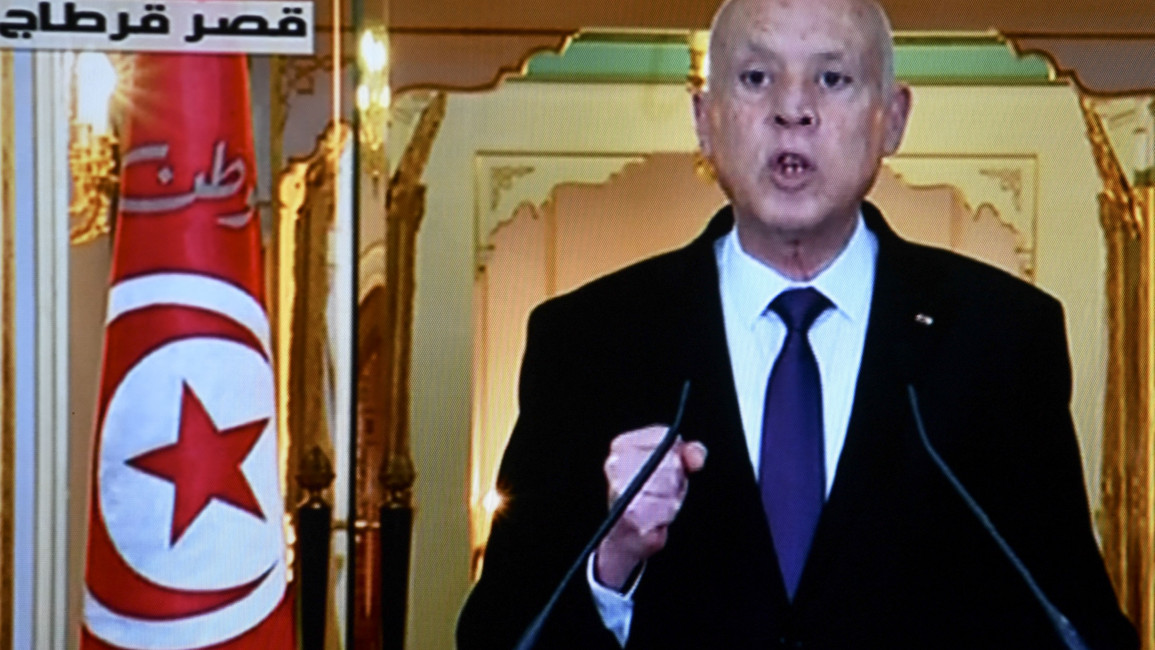EU presses Tunisia in bid to stem Med migrant flow
EU leaders meeting in Brussels on Thursday are to look at ways to press aid on Tunisia in a bid to stem migrant boat departures for Europe.
The discussion will come two weeks after a boat believed to have been carrying hundreds of migrants capsized off Greece in one of the worst such tragedies in years.
At least 82 people died and many more remain missing in the sinking, which occurred in unclear circumstances.
Amnesty International and other rights groups say the tragedy resulted from Brussels' "Fortress Europe" policy implemented over the past seven years, since experiencing a huge inflow of Syrian war refugees.
"The recent tragic shipwreck in the Mediterranean, and the many lives lost, is a stark reminder of our need to continue working relentlessly on our European migratory challenge," European Council chief Charles Michel said in his letter inviting leaders to the Brussels summit.
"We will review the migratory situation and progress in the implementation" of decisions made in a previous summit in February, he said.
In early June, European Union countries reached agreement on a long-stalled revision of the bloc's asylum rules.
It aims to share the burden of hosting asylum seekers across EU countries, with those refusing to do so having to pay money to the ones that do.
Poland and Hungary, which were outvoted on the plan, have come out strongly against it and intend to have it discussed at Thursday's summit, EU diplomats said. It also needs buy-in from the European Parliament.
Poland's European affairs minister, Szymon Szynkowski vel Sek said on Tuesday that being forced to pay other EU countries to host migrants was a violation of his country's "sovereign rights".
"A fee of 20,000 euros (per migrant) is de facto punishment," he said.
Frontex, the EU's border patrol agency, says boat crossings across the central Mediterranean constitute the principal route for irregular migrant entries to Europe.
Crossings leaving North African countries including Tunisia and going to EU nations Italy and Malta "more than doubled" between January and May this year, compared with the same period in 2022, it says.
Brussels is seeking to extend a tactic it used with Turkey in 2016, which worked to greatly reduce irregular migration flows to Europe in exchange for six billion euros in assistance.
European Commission President Ursula von der Leyen on June 11 offered Tunisia more than one billion euros - 900 million euros in long-term aid plus 150 million euros immediately - if it meets International Monetary Fund conditions for an IMF loan worth nearly $2 billion.
The EU money would largely go to improving economic prospects for people in Tunisia. An extra 100 million euros this year is also to go to boosting Tunisia's border patrols, search and rescue and accepting back denied asylum seekers.
But Tunis, though indebted, has balked at what Tunisian President Kais Saied called IMF "diktats".
The US government has strongly urged Tunisia to undertake the IMF reforms. US Secretary of State Antony Blinken warned two weeks ago that Tunisia risked falling off an "economic cliff".
Italian Foreign Minister Antonio Tajani said on Monday that it was important for Europe "to try to address and resolve the financial problem" of Tunisia, "to ensure the country's stability".
At a time when Europe is experiencing fall-out from Russia's war in Ukraine, "we shouldn't forget the importance of the southern front," the Mediterranean, he said.
French Foreign Minister Catherine Colonna, also on Monday, said Paris wanted to see the IMF deal sealed with Tunisia "because it's in the interest of that country, which is a close country and a friendly one".
France has separately announced 26 million euros in aid to Tunisia to help curb departures by irregular migrants across the Mediterranean.
Many of the migrants coming from Tunisia originate from sub-Saharan Africa. The country is also in the grip of a worsening economic crisis that has pushed many of its citizens to take desperate measures in search of better lives abroad.
The International Organization for Migration says 2,406 migrants died or disappeared in the Mediterranean in 2022, while 1,166 deaths or disappearance were recorded since the start of 2023.



